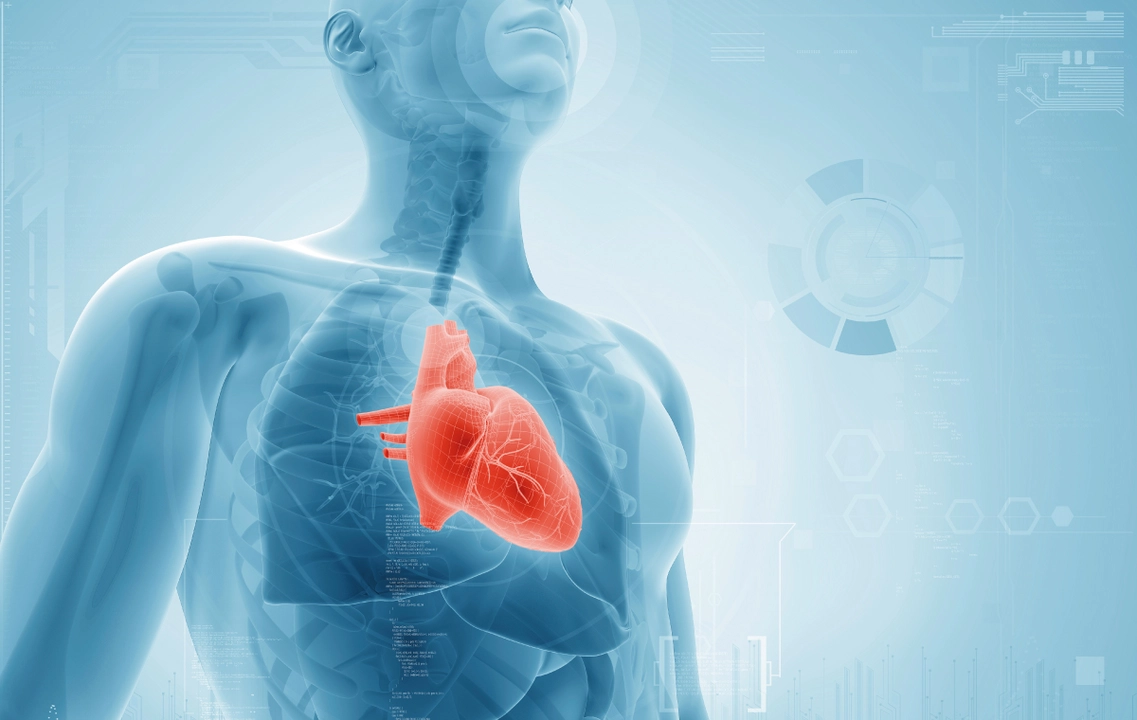Introduction to Heart Rhythm Disorders and Exercise
As someone who has experienced heart rhythm disorders, I know how challenging it can be to manage them. In my quest for better health, I discovered that exercise plays a crucial role in managing these conditions. In this article, I'll share with you the benefits of exercise for heart rhythm disorders, and how to incorporate it into your daily routine.
Understanding Heart Rhythm Disorders
Before diving into the role of exercise, it's essential to understand what heart rhythm disorders are. These conditions, also known as arrhythmias, occur when the electrical impulses that coordinate your heartbeats don't work properly. This can cause your heart to beat too fast, too slow, or irregularly. Some common types of heart rhythm disorders include atrial fibrillation, atrial flutter, and ventricular tachycardia.
The Benefits of Exercise for Heart Rhythm Disorders
Now that we have a better understanding of heart rhythm disorders, let's explore the benefits of exercise. Regular physical activity is known to improve cardiovascular health and overall well-being. For individuals with heart rhythm disorders, exercise can help in several ways:
1. Strengthening the heart muscle, making it more efficient and resilient.
2. Improving blood flow and circulation, which can lower the risk of blood clots.
3. Helping maintain a healthy weight, reducing the strain on the heart.
4. Reducing stress and anxiety, which can contribute to arrhythmias.
5. Improving sleep quality, since poor sleep can exacerbate heart rhythm disorders.
Consulting Your Doctor Before Starting an Exercise Program
Before embarking on any exercise program, it's crucial to consult your doctor. They can assess your current health and fitness level and help you determine the best type and intensity of exercise for you. Your doctor may also recommend specific activities that are safe and beneficial for managing your heart rhythm disorder.
Choosing the Right Type of Exercise
Once you've received clearance from your doctor, it's time to choose the right type of exercise for you. Generally, individuals with heart rhythm disorders should focus on moderate-intensity aerobic activities, such as brisk walking, swimming, or cycling. These exercises help improve cardiovascular endurance and heart health, without putting too much strain on the heart. Strength training and flexibility exercises can also be beneficial, but should be done in moderation and under the guidance of a healthcare professional.
Creating a Balanced Exercise Routine
A balanced exercise routine is essential for overall health and managing heart rhythm disorders. Aim for at least 150 minutes of moderate-intensity aerobic activity per week, spread across multiple days. Include at least two days of strength training, focusing on all major muscle groups. Also, incorporate flexibility exercises, such as stretching or yoga, to improve your range of motion and prevent injuries.
Monitoring Your Heart Rate During Exercise
When exercising with a heart rhythm disorder, it's essential to monitor your heart rate. This ensures you're working within a safe range and not overexerting yourself. Invest in a heart rate monitor and learn how to use it properly. Consult your doctor for guidance on the appropriate target heart rate zone for your specific condition and fitness level.
Conclusion
Managing heart rhythm disorders can be challenging, but incorporating exercise into your daily routine can significantly improve your quality of life. Remember to consult your doctor before beginning any exercise program, and work together to create a plan that is safe and effective for your unique needs. By staying active and making healthy choices, you can take control of your heart health and live a fulfilling life.





Chris Rowe
June 3, 2023 at 03:31lol so exercise fixes everything now? next you'll say drinking water cures cancer.
my grandpa had afib and walked 2 miles a day. died at 87. so yeah, great plan.
Sushmita S
June 5, 2023 at 01:53i tried walking. got dizzy. now i just sit. 😴
AnneMarie Carroll
June 5, 2023 at 04:53You're telling people to exercise like it's a magic pill while ignoring that 70% of arrhythmias are triggered by inflammation, gut dysbiosis, and electromagnetic pollution from smart meters.
But sure, go jog past the 5G tower. 🤡
John K
June 6, 2023 at 09:06usa best. usa cardio best. you guys in india and africa better listen to doctor not some guy on internet. we got the best heart stuff here. 💪🇺🇸
Laura Anderson
June 7, 2023 at 03:43The underlying assumption here is that the body is a machine that can be tuned via external inputs - exercise as a pharmacological agent. But what if arrhythmia is not a malfunction but an adaptive response to chronic stress, environmental toxins, or emotional repression?
Pushing the body to move harder may just amplify the dissonance. The heart doesn't need more work. It needs peace.
Avis Gilmer-McAlexander
June 8, 2023 at 22:49I love how this post doesn't just say 'exercise good' but actually breaks it down. I had PVCs for years, stopped running, started yoga + daily walks, and my cardiologist was shocked. Not cured, but way less scary.
Also, the heart rate monitor tip? Game changer. I used to push too hard out of guilt. Now I just breathe. It's not about performance. It's about presence.
Jerry Erot
June 10, 2023 at 13:01I'm sorry, but if you're going to recommend exercise, you need to cite actual RCTs, not blog links from journals with impact factors below 2.
Also, 'moderate intensity' is undefined. What does that even mean? 50% VO2 max? 60%? HRZ? Without operational definitions, this advice is dangerously vague.
Fay naf
June 12, 2023 at 08:54Exercise as a therapeutic modality for arrhythmias is a neoliberal myth designed to shift burden from systemic healthcare failures onto the individual.
Who has time to 'exercise' when they're working two jobs, eating processed food, and sleeping 4 hours because their landlord raised the rent?
Also, your bibliography is all .pdfs from predatory journals. You're not helping. You're gaslighting.
ANTHONY SANCHEZ RAMOS
June 13, 2023 at 02:58bro i started walking after my pacemaker install and now i can climb stairs without feeling like i'm gonna die 😭
also yoga helped my anxiety so much. dont let the haters scare u. just move how u can. 5 min counts. u got this 💪❤️
Matt Czyzewski
June 14, 2023 at 09:01The heart is not merely a pump. It is the seat of the soul's rhythm - a metaphysical metronome echoing the pulse of the cosmos.
When we force motion upon it, we disrupt its natural harmony. Perhaps the true therapy lies not in exertion, but in stillness - in listening to the silence between beats.
John Schmidt
June 14, 2023 at 22:31everyone says exercise but nobody talks about the fact that adrenaline spikes from stress cause 80% of my episodes.
so i just sit. and stare at the wall. and drink tea. and cry. and feel guilty.
but hey, at least i'm not 'unhealthy'. right?
Lucinda Harrowell
June 15, 2023 at 18:16I’ve had SVT since I was 19. Walked every day for 10 years. Still had ablations.
Exercise didn’t fix it. But it kept me sane.
That’s enough.
Joe Rahme
June 17, 2023 at 17:13This is actually really thoughtful. I appreciate you sharing your personal journey - it helps others feel less alone.
Thanks for the practical tips too. I’m going to talk to my doc about a safe routine.
Leia not 'your worship'
June 18, 2023 at 15:15You say consult your doctor but what if your doctor doesn't believe you? I told mine my heart skips every time I stand up. He said 'you're anxious'.
Turns out I had POTS.
So yeah. Trust yourself too.
Jo Sta
June 20, 2023 at 14:44This is why America is falling apart. People think walking fixes everything.
My cousin had a stroke because he 'exercised too hard'. Now he's paralyzed.
Don't be a dumbass.
KALPESH GANVIR
June 22, 2023 at 08:10I have afib and I walk 30 mins every morning before work.
It’s not about being perfect. Just showing up.
And if you’re tired? Walk slower. That’s okay too. ❤️
April Barrow
June 22, 2023 at 18:23Thanks for the clear structure. The heart rate zone advice is solid. I’ll share this with my support group.
Melody Jiang
June 23, 2023 at 02:47I’ve seen so many people with arrhythmias feel guilty for not exercising enough.
This post doesn’t add to that guilt. It offers gentle guidance.
That’s rare. Thank you.
Richa Shukla
June 23, 2023 at 09:42I know what you're doing. You're part of the Big Pharma-Exercise Industrial Complex. They don't want you to know that arrhythmias are caused by fluoride in the water and 5G towers.
They want you to think you can 'fix' it by walking.
Wake up. The truth is hidden.
They're watching you right now.
Look behind you.